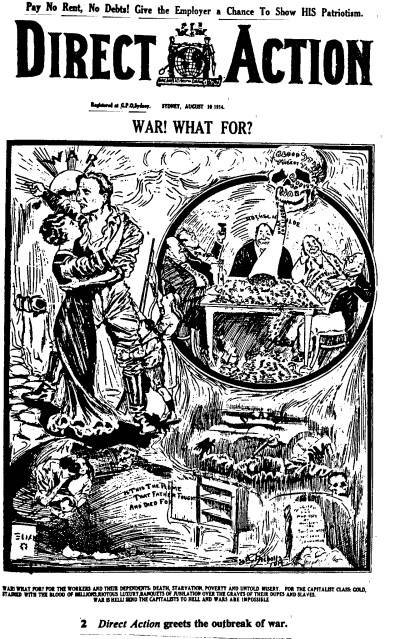Latin America: Manifesto of the First Continental Summit of Indigenous Women
Puno, Peru – May 27-28, 2009 – We, indigenous women gathered in the sacred lands of Lake Titicaca, after two days of discussions and deliberation raise our voices in these times when Abya Yala’s[1] womb is once more with childbirth pains, to give birth to the new Pachakutik

[This is the ninth in a series of regular articles. Click HERE for other articles in the series. Please return to Links regularly read the next articles in the series.]
By Marta Harnecker, translated by Federico Fuentes for Links International Journal of Socialist Renewal
1. Among the left, there continues to be a difficulty to work together while respecting differences. In the past, the tendency of political organisations, especially parties that self-declare themselves as parties of the working class, was always towards homogenising the social base within which they carried out political work. If this attitude was once justified due to the past identity and homogeneity of the working class, today it is anachronistic when confronted with a working class that is quite differentiated, and with the emergence of a diversity of new social actors. Today, we increasingly have to deal with a unity based on diversity, on respect for ethnic and cultural differences, for gender and for the sense of belonging of specific collectives.
South Korea’s rollback of democracy

By George Katsiaficas
Adam Smith was closer to Karl Marx than those showering praise on Smith today

Biofuels and sustainable transport -- Can biofuels be produced and used responsibly?

By Renfrey Clarke
June 16, 2009 -- For governments and vehicle corporations, the charm of biofuels used to be the promise they held out of a ready-made solution to transport-related greenhouse gas emissions -- a solution that might simply be dropped in, while changing almost nothing else. Freeways, suburban sprawl, four-wheel-drive family cars -- everything could remain. Only the fuel on sale at service stations would be different.
Biofuels, the promise to the public ran, would be ``clean and green’’, an environmental zero-sum. Although carbon was released to the atmosphere when biofuels were burnt, this was carbon that had been there earlier, before being taken up by the plants from which the fuels were derived.
South Africa: Political balance shifts left -- though not enough to quell grassroots' anger

By Patrick Bond
June 13, 2009 -- With high-volume class strife heard in the rumbling of wage demands and the friction of township ``service delivery'' protests, rhetorical and real conflicts are bursting open in every nook and cranny of South Africa. The big splits in society are clearer now. Distracting internecine rivalries within the main left bloc have subsided. From 2005-09, the ruling African National Congress' huge wedge between camps allied to Thabo Mbeki and to the new president, Jacob Zuma, cleaved the ANC in two, but Zuma's troops have mostly flushed out the former's from the state and party.
So the bigger story now is the deep-rooted economic crisis. Government fiddling at the margins with Keynesian policies is not having any discernable impact. A lower interest rate -- down 4.5% from last year's peak (to around 10% prime with around 8% inflation) -- and a probable 5% state deficit/GDP ratio (last year's was a 0.5% surplus) are not nearly enough tinkering to stave off a serious depression.
The Industrial Workers of the World in Australia: achievements and limitations

Marta Harnecker: Ideas for the struggle #8 -- The left must attempt to set the agenda for struggle
[This is the eighth in a series of regular articles. Click HERE for other articles in the series. Please return to Links regularly read the next articles in the series.]
By Marta Harnecker, translated by Federico Fuentes for Links International Journal of Socialist Renewal
1. In the previous article, we stated that a large section of the party left has found it very difficult to work with social movements and develop ties with the new social forces in recent decades. This has been due to several factors.
European election: `An alarm is ringing' -- time `to build the broadest possible left unity'

Statement by Socialist Resistance (Britain)
June 14, 2009 -- The European election results are not good reading for the workers’ movement. Across Europe the turnout was only 43.2% and the main winner was the centre right. Centre-right governments in France, Italy, Germany and Poland all made gains to one degree or another as they did in Austria and Hungary.
On the other hand social-democratic parties, particularly those in government in Britain, Spain and Portugal were in full retreat.
In Britain — where there was toxic mix of economic crisis and political crisis around MPs’ expenses corruption — the turnout was even lower at 34.4%, and the results were disastrous for the Labour Party. Its share of the poll collapsed to 15.8%, its worst result for 99 years. It came third after the UK Independence Party (UKIP) — which stood on a dangerous nationalist and anti-migrant ticket — and was beaten by the Tories in Wales.
The implications of this for new Labour can hardly be exaggerated, and it now faces near inevitable defeat at the hands of the Tories in a general election.
New Zealand: Responding to the crisis -- Broad left unity to mobilise masses of people
By Vaughan Gunson
Unity, May 2009 -- Facing the left today are incredible challenges. The global economic meltdown, combined with the nightmare scenarios of runaway climate change and resource depletion, looms as a human disaster of an unimaginable scale.
The question we are all asking ourselves: is how can we organise ourselves and grassroots people into a movement that has the strength and vision to set the world on a different course?
Over the last decade Socialist Worker-New Zealand, a small Marxist organisation, has moved towards the realisation that we need to be building alongside other activists a broad left party which has the breadth and reach to give leadership to masses of people. And that we need to begin now, not later.
DSP reiterates support for the right of self-determination for the Tamil people
Democratic Socialist Perspective (Australia) statement in response to the United Nations Human Rights Council resolution on Sri Lanka
